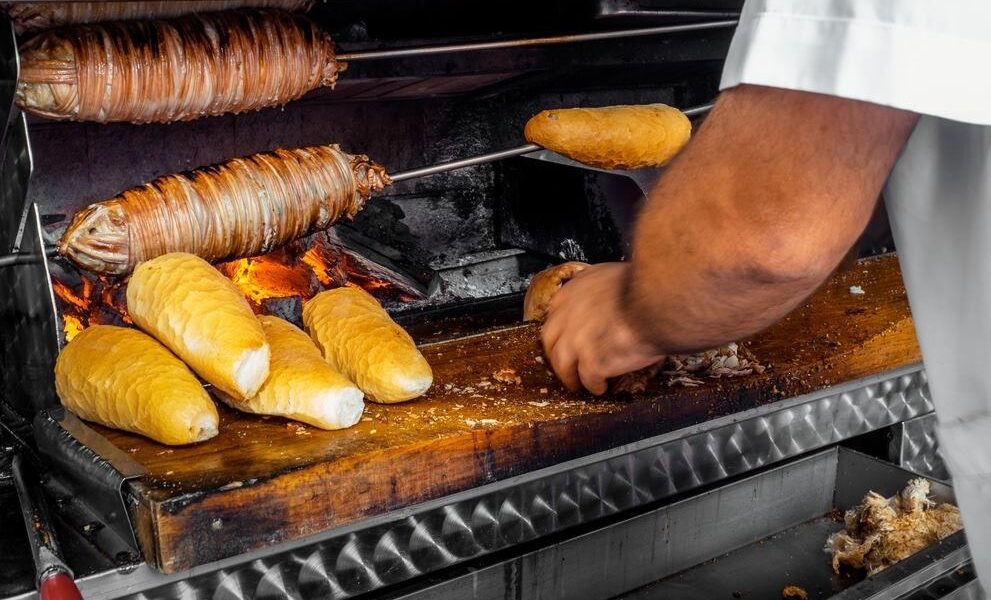Turkish media devote entire reports and front pages, arguing that “kokoretsi is Turkish”.
As the SKAI correspondent Manolis Kostidis broadcasts from Istanbul, Show TV’s main news bulletin, in a more relaxed pace after the tough topics of the previous interval, raised the issue as follows:
“After baklava, tzatziki and imam baildi, Greece is now also claiming kokoretsi! Greece advertises traditional Turkish food as its own. We discussed this issue with the chefs and they told us that we will not leave kokoretsi in the hands of the Greeks!”
In fact, there was also a report with Turkish citizens saying in front of the camera: “I challenge them, it’s ours. Let them come and see, I make the best. They didn’t take us to the EU, now they’re going to take the chick too?”
Another citizen said: “Let’s have a Greek come and eat kokoretsi together. Whoever eats more, then the kokeretsi will be his”.
Another said: “Our kokoretsi is different, it is wonderful. They go and claim our kokoretsi. The kokoretsi is something left from our ancestors.”
A dish identical to modern kokoretsi is first attested in the cuisine of the Byzantines. They called it πλεκτήν (plektín), κοιλιόχορδα (koilióchorda), or χορδόκοιλα (chordókoila); the latter two are preserved with the meaning of wrapped intestines in the Greek idioms of Corfu as τσοιλίχουρδα (tsoilíchourda), of Plovdiv as χορδόκοιλα (chordókoila), of Chios as σοιλίγουρδα (soilígourda), of Pontians as χορδόγκοιλα (chordógkoila), and in part, of Zagori and Argyrades as χορδή (chordí), of Thessaly as χουρδή (chourdí), of northern Peloponnese as κορδιά (kordiá) or κόρδα (kórda), and of Vogatsiko as κουρδί (kourdí).
Other names found in medieval texts are γαρδούμιον (gardoúmion) and γαρδούμενον (gardoúmenon), from which γαρδούμπα (gardoúmpa) and γαρδουμπάκια (gardoumpákia) derive, as alternative names for a smaller version of kokoretsi in Greece.
Τhe Medieval Greek γαρδούμιον (gardoúmion) in turn derives from Latin caldumen; from caldus or calidus ‘warm, hot’.
According to Greek linguist and philologist Georgios Babiniotis, the Greek word κοκορέτσι (kokoretsi) comes from Albanian kukurec.
According to Turkish-Armenian linguist Sevan Nişanyan, Albanian kukurec is a loanword derived from Serbo-Croatian and Bulgarian kukuruza, originally meaning corncob in these languages.
Nişanyan also asserts that the Greek word is not derived from the Albanian kukurec, but both words are cognates that were loaned from South Slavic languages independently.
The Turkish word kokoreç was first attested in Lokanta Esrarı; a short story written in 1920 by the Turkish author Ömer Seyfettin.
The author writes that the first time he heard of kokoreç, was when it was presented to him as a specialty of an Athenian who worked in an Istanbul restaurant; it was described as a Greek dish made from small intestines.
The Turkish word derives from the Greek κοκορέτσι (kokorétsi).
READ MORE: From The Time Of Homer: Easter Lamb And Kokoretsi.


